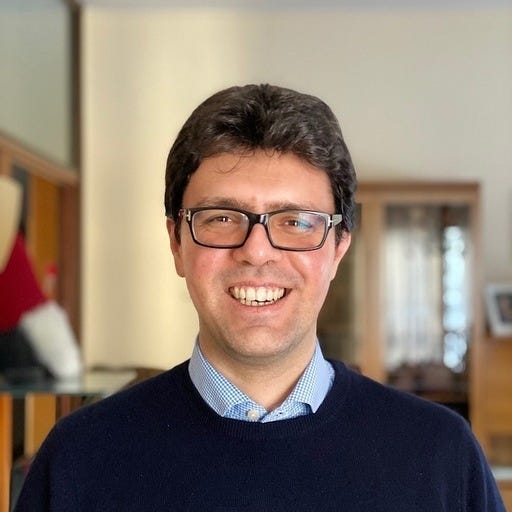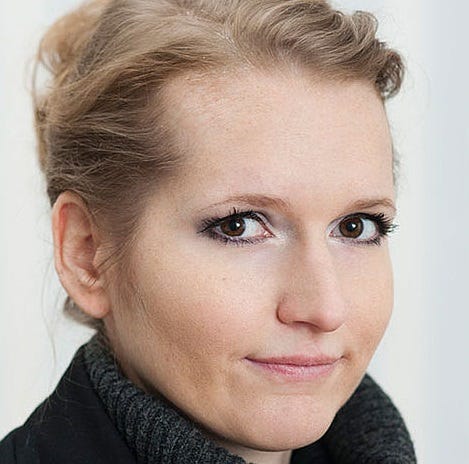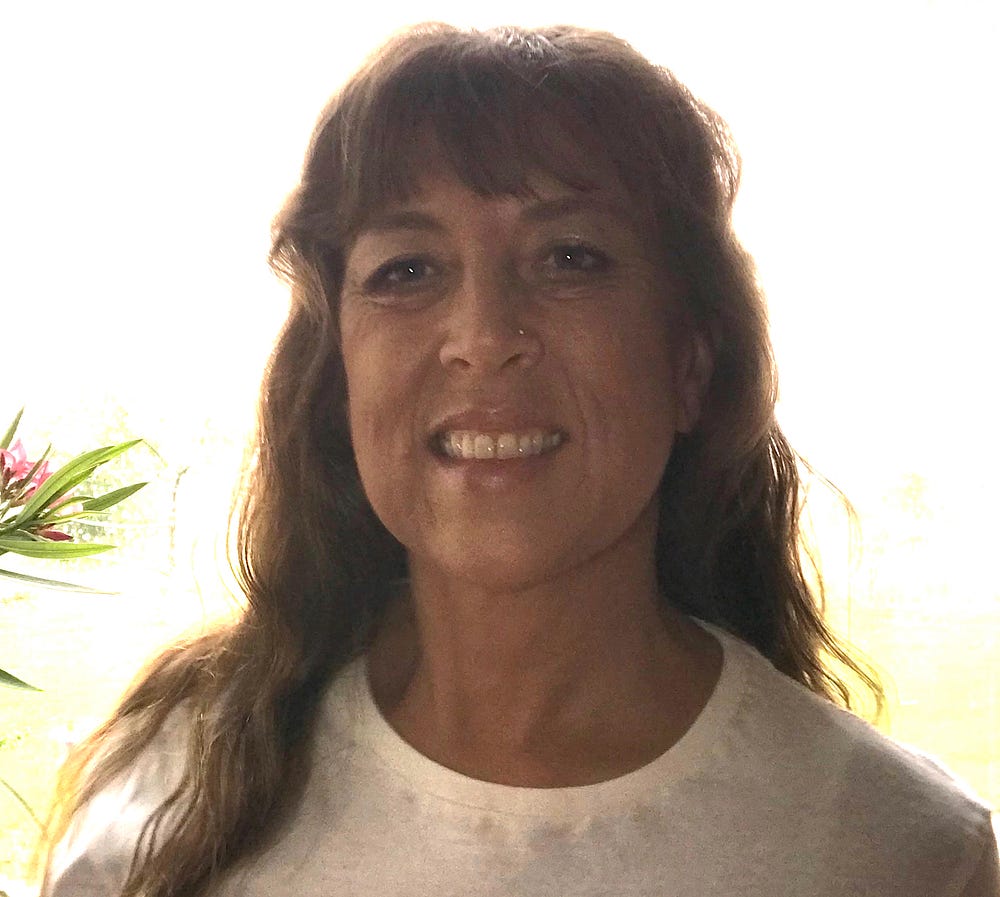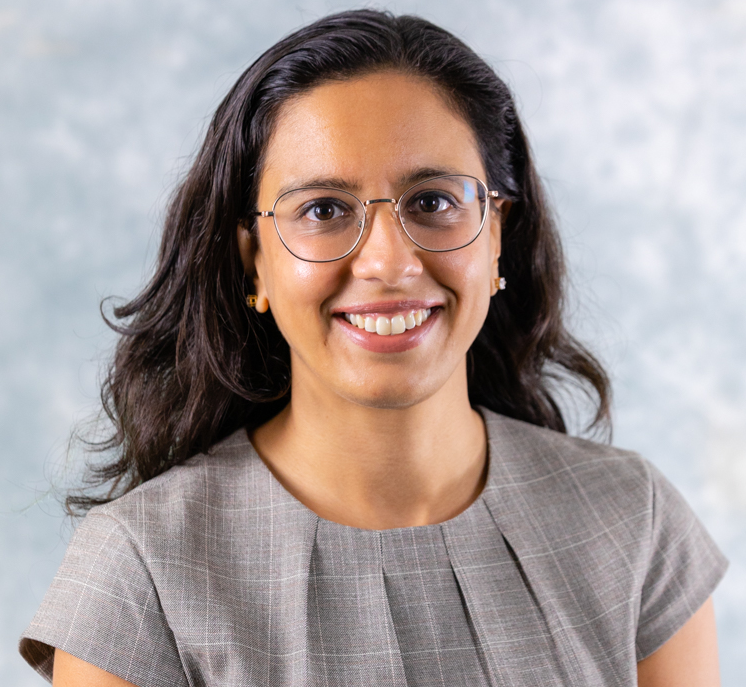We’re delighted to announce the results of our second set of open calls, which closed on August 27, 2021. These were for the SIGCHI Executive Committee’s (EC’s) Adjunct Chairs (ACs) for Community Support, Equity, Knowledge Sharing, Partnerships, Sustainability, and Volunteer Support.

First, we’d like to thank all those who applied for these positions. All six roles are significant undertakings, and many of them are newly created (i.e., community support, knowledge sharing, partnerships, and sustainability). Given the weekly time commitment for these roles, it is no small task to nominate oneself or another. The number of nominations ranged from 1 to 3 across roles; some positions were relatively more popular (e.g., AC Volunteer Support) than others (e.g., AC Partnerships). It is evident again, as with our first set of calls, that although open calls may make it possible for more to volunteer, they may not necessarily make the roles more accessible or attractive. As mentioned earlier, we must do more towards lowering barriers to participation, starting from increasing transparency around these roles, making the volunteering burdens more tenable, establishing more robust pipelines, and actively inviting greater participation. This will be an ongoing effort in coming years.
Our process of reviewing candidates was the same as last time: All nominations we received were reviewed by pre-decided sub-groups of committee members and, after duly considering conflicts of interest, each sub-committee met with up to 3 strong candidates virtually (for approx. 30 minutes). Each call began with brief introductions from everyone in the Zoom room, along with an overview from the president (i.e. myself) of what to expect in the call and after. For each role we posed a common set of questions to the candidates, leaving them time enough to ask their own. EC members on the calls took detailed notes, considering each candidate in terms of their perceived backgrounds of relevance, drive and vision, and commitment to SIGCHI and the EC.
Almost all calls with candidates took place in the week of September 13–17, barring one exception that needed a follow-up call. Once all calls had been completed for each role, the sub-committees arrived at recommendations for the EC to consider. All considerations and recommendations were discussed and voted on by the EC members involved in evaluating these open calls. We informed all those who we were unable to appoint, with the hope that we might engage them in other volunteering roles, as interests and roles align.
Please read about our new officers below (listed in alphabetical order of their roles):
- Luigi De Russis for Community Support
- Cale Passmore for Equity
- Simone Kriglstein for Knowledge Sharing
- Susan Dray for Partnerships
- Nic Bidwell for Sustainability
- Priya Kumar for Volunteer Support
Luigi De Russis is Assistant Professor at Politecnico di Torino, Italy. His research and teaching lie at the intersection of Human-Computer Interaction and the Internet of Things. His focus is on end-user development approaches for personalizing Internet-of-Things environments, and on digital wellbeing from a multi-device and multi-user perspective.

Luigi has been a member of the SIGCHI Development Fund (SDF) Committee since January 2020, where he managed the SDF, by leading the discussion around incoming proposals in the committee’s weekly meetings and communicating regularly with the ACM and with SDF applicants and recipients. In addition, he led the revision of the SDF call in response to COVID-19, to support and encourage virtual and hybrid events for the global SIGCHI community. In other ACM roles, he has been a member of the inaugural class of the ACM Future of Computing Academy and also served as the vice-chair of the group (2019–2021).
In his role as Adjunct Chair for Community Support, Luigi is guided by the values of ACM SIGCHI to understand, serve, and reach out to the community in any part of the world, taking responsibility for the initiatives he will be involved in, and setting up the infrastructures the community needs. He would aim for setting new practices and simplifying external-facing processes for community-oriented initiatives (like the SDF or the Gary Marsden Travel Awards), while preserving transparency and maintaining an open listening channel to provide meaningful experiences for our members. He would also like to introduce new mechanisms that support the community and continue to work towards eliminating barriers to participating in SIGCHI’s initiatives.
You can learn more about Luigi on his personal website or follow him on Twitter.
Cale Passmore is a knowledge worker and Ph.D. student at the University of Saskatchewan’s Applied Computing Program on Treaty 6 territory, Canada. With degrees in Psychology, Critical and Cultural Theory, and English, Cale’s interdisciplinary lens currently focuses on intersections of identity, discrimination, and coping within contexts of digital design and play. They’ve served as Equity Co-Chair for CHI 2019 and CHI Play 2020, Allyship Chair for CHI 2022, and helped establish numerous initiatives across the SIGCHI community (SIGCHI Cares, the SIGCHI Equity Talks Series, Allyship programming, etc.). With two decades of activism across local and international contexts and an adept understanding of systems-based approaches to oppression and liberation, Cale has seen how the solutions to inequities experienced by its most marginalized members benefit all members of a community.

As Adjunct Chair for Equity, Cale seeks to continue their work of listening and social investigation. By working closely with other EC members, they wish to strengthen the power (social, material, and representative) of chapters, special interest groups, and global attendees. Cale will push for transparent and historical documentation of issues raised, resolutions attempted, parties involved, and outcomes. This means documenting process and inviting critique. This is crucial for accountability in our executive committee, and makes possible a scientific history of (in)equity within our community. Cale has seen frustration and burnout — cycles of demand for labor — by those who’ve tried to institute changes within SIGCHI contexts. Lack of continuity in programs and policies, in the problems raised and solutions found at each level, has been a barrier to establishing better norms of inclusion. And to that end they seek to standardize equity programming and policies across conferences and SIGCHI operations.
First, though, comes listening. Reach out to Cale personally via email, on twitter, or follow their scholarship.
Simone Kriglstein is Associate Professor at the Masaryk University, as well as scientist at the Austrian Institute of Technology and the University of Vienna. She specializes in designing and evaluating user interfaces and interaction methods in different fields, including games. Simone has received or has been nominated for several awards for her work on games, including the German Game Developer Newcomer Award (2006).

Simone has been an active ACM volunteer, reviewing and serving on the program committees for several SIGCHI conferences over many years. She has also served as social media & publicity chair for TEI 2020 and for CHI 2019–2022, as well as a Work-in-Progress chair for CHI PLAY in 2020 and 2021. Furthermore, she has served on the SIGCHI communications committee since 2019, where her responsibilities have included attending to SIGCHI’s social media and mailing lists.
Simone’s roles within SIGCHI have shown her how important knowledge sharing is to promote research, disseminate findings, and grow our world-wide community, and also how valuable exchanges among various conference organizers are in order to facilitate organizational matters. She is looking forward to closely cooperate with the VP for Conferences, the VP for Membership and Communication, ACs for Equity, Sustainability, and Accessibility and others, to establish inclusive and SIGCHI-wide activities.
You can read more about her on her website, or reach out to her on Twitter and on LinkedIn.
Susan Dray is a founding member of SIGCHI, and has long been building bridges to connect a number of organizations and groups within HCI. Her first experience of SIGCHI at its founding in Gaithersburg (1982) was also a bridging event for her, where she served as the chair of the Computer-Systems Technical Group of Human Factors and Ergonomics Society (HFES, then HFS) and participated in the forming of a new organization dedicated to HCI.
Susan has worked with a number of HCI leaders across the world to establish SIGCHI chapters and support HCI research and practice. As former SIGCHI Vice-President at Large, Susan ran three successful SIGCHI Across Borders workshops (in Egypt, Guatemala, and the UK) to identify shared challenges, introduce ACM and SIGCHI, and help identify ways to build stronger communities. This resulted in the creation of new local chapters, a South American consortium, commitment to adapt or develop new research methods for conducting studies in Arab communities, as well as to translate introductory HCI courses into Arabic.
Susan received the Lifetime Practice Award at CHI 2015 in Seoul, where her talk was titled Building Bridges, Not Walls — The Interdependence of Academics and Practitioners in Human-Computer Interaction. In 2017, she became an ACM Fellow “for co-founding ACM SIGCHI and disseminating exemplary user experience design and evaluation practices worldwide.” She has been tirelessly working to bring together researchers and practitioners at conferences, including the User Experience Professionals Association (UXPA), the Human Factors and Ergonomics Society (HFES), and CHI, as well as other smaller venues. As different as communities of researchers, practitioners, educators, and designers can be, Susan believes that we need to work more closely together to ensure that we have the best information to act upon, to teach, and to use as the base of our practice, and that researchers are aware of key critical issues in practice to inform their research.
You can connect with Susan on Twitter and read about her on Wikipedia.
Nic Bidwell is Associate Professor and Research Group Head of Technoanthropology and Participation at Aalborg, Denmark and Adjunct Professor at International University of Management, Namibia. Nic is Australian and British, but spent the first few years of life in Khartoum and the past 13 years in southern Africa, mostly in rural areas. Her recent studies cover rural community networks in the global south; experiences of conditional programming in philanthropic donations; interactions with algorithms in ride-sharing platforms; and, exploring mathematical abstractions in the Kalahari for the purposes of epistemically accountable AI.

Local meanings about sustainability have shaped Nic’s commitments since she began in HCI; from Aboriginal co-authors’ traditional knowledge about fire in Australia to communal solar charging in South Africa. She feels honoured that her co-author was the first Aboriginal person to present a pluriversal perspective on sustainability at a major international HCI conference (DIS 2008); to have been the General Chair of the first OzChi conference to explicitly articulate sustainability in our conference goals in (OzCHI 2008); and, to have co-founded AfriCHI when it launched in Nairobi (2016).
Achieving a culture of sustainability for SIGCHI and for HCI requires reconciling different meanings about socio-environmental sustainability. While sustainability is, of course, everyone’s responsibility, real impact is only achieved by integrating local and global actions. It’s very encouraging that our conferences are working on ways to increase inclusion and reduce travel; yet, our sector as a whole continues to increase its contribution to global emissions (from its current contribution of 2%, which is similar to emissions in the aviation industry). Thus, working with different interests will be central to the Sustainability Committee’s work. This will include creating an open reference to guide priorities; impact targets for all activities, indicators to track performance, and incentives for improvements; practical guidelines and benchmarks for conference organizing committees; and new collaborations between sectors.
Priya Kumar is an assistant professor at Pennsylvania State University’s College of Information Sciences and Technology. Her research on the datafication of family life aims to shift digital technology design and discourse away from a focus on individual control and toward more networked understandings of privacy and agency. She has been part of the SIGCHI community since 2015, participating in the CHI, CSCW, and IDC conferences as a peer reviewer, student volunteer, and Late-Breaking Work PC member.

As an early-career researcher, Priya has grown immensely thanks to the support and advice of mentors in the SIGCHI community. But efforts like the SIGCHI Equity Talks have made clear that not everyone has a similar experience. Priya sees participating in the SIGCHI EC as one way to pay it forward and ensure that volunteer support and mentorship not only continues but, importantly, expands to reach every member of the community. As an AC for Volunteer Support, Priya strives to cultivate conditions that enable SIGCHI volunteers to thrive. She is especially interested in efforts to support early career researchers, including students, and to foster equity and inclusion across the community.
For more information about Priya, visit her webpage, or follow her on Twitter @DearPriya.
The EC now consists of 20 members, in addition to our Project Manager (Kristi Audette) and ACM Liaison (Sade Rodriguez). With the six new officers, we now have 8 EC members living in the US, 3 in Canada, 6 in Europe (in Denmark (2), UK, Germany, Austria, and Italy), and 1 each in Brazil, Japan, and Australia. With this second round of open calls, our team is close to complete, though we expect to continue seeing small changes with time.
Our next focus will be on creating new committees and expanding existing ones, as our newer officers spend the next month or so identifying their priorities for the current EC term (2021-2024). Committee roles are lighter in terms of workload but can be reasonably autonomous, so that volunteers can take ownership of the initiatives they are passionate about, without having to also take on EC-specific responsibilities.
If you are interested in serving on one of our committees, we welcome you to apply to our (permanent) open call for volunteers. This call will develop further in coming weeks and months, and we will publicize this more widely on our regular communications channels once our new members and committees have a more well-defined focus. If you already know what you’d like to be involved in, please go ahead and use this form to tell us, and we will do our best to connect you to the right people/initiatives.

